Adjusting an impact crusher machine correctly is crucial for optimizing its performance and ensuring efficient operation. Adjusting the operating parameters of the impact crusher requires comprehensive consideration of factors such as equipment performance, material characteristics and production requirements. The following are specific steps to adjust operating parameters such as rotor speed and discharge port size:
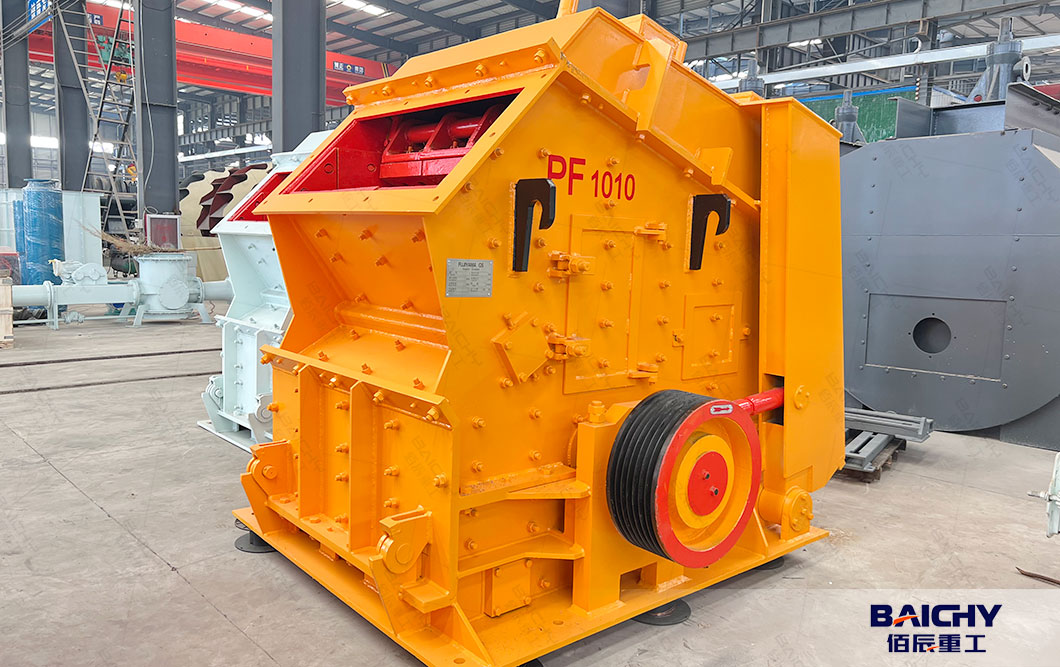
Steps To Adjust Impct Crusher Rotor Speed
1. Understand the characteristics of the equipment and materials
1-1. Consult the equipment manual of the impact crusher to clarify the adjustable range of its rotor speed and the applicable material type and particle size range.
1-2. Analyze the properties of the material to be crushed, such as hardness, humidity, viscosity, etc., as well as the required crushing particle size requirements, to provide a basis for determining the appropriate rotor speed.
2. Shut down and cut off the power
2-1. Before adjusting the rotor speed, make sure that the crusher has completely stopped running and cut off the power to prevent accidents.
3. Adjust the transmission device
3-1. For crushers with belt drive, the rotor speed can be adjusted by changing the diameter of the pulley. Loosen the fixing bolts of the pulley and replace the pulley with a suitable diameter. Increasing the diameter of the driving pulley or reducing the diameter of the driven pulley can increase the rotor speed; conversely, reduce the rotor speed.
3-2. If the crusher is driven by a coupling, it may be necessary to adjust the number of motor poles or use a frequency converter to change the motor speed to adjust the rotor speed.
4. Inspection and testing
4-1. After adjusting the transmission device, reinstall and tighten the relevant parts to ensure that the connection is firm.
4-2. Turn on the power, conduct a no-load test run, observe the operation of the crusher, check whether the rotation direction of the rotor is correct, and whether there are abnormal vibrations, noises, etc.
5. Load debugging and optimization
5-1. After the no-load operation is normal, perform load debugging. Gradually add materials to the crusher and observe the operation of the equipment under different feed rates.
5-2. Further fine-tune the rotor speed according to the crushing effect and product particle size requirements. If the product particle size is coarse, the rotor speed can be appropriately increased; if the product particle size is too fine or the equipment load is too large, the rotor speed should be reduced.
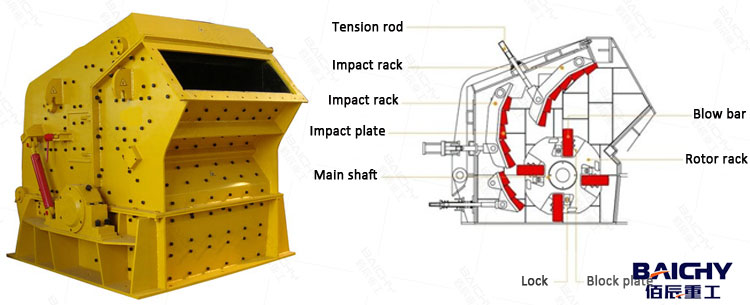
Steps for adjusting the impact crusher discharge port size
1. Shut down and take safety measures
Stop the operation of the impact crusher and cut off the power supply. At the same time, set warning signs around the equipment to prevent personnel from operating it incorrectly.
2. Determine the adjustment method
Different models of impact crushers may have different ways of adjusting the discharge port size. Common ones are wedge adjustment and hydraulic adjustment.
3. Wedge adjustment type discharge port adjustment
3-1. Loosen the fixing bolts of the wedge and change the size of the discharge port by adjusting the position of the wedge. Usually, moving the wedge upward will reduce the size of the discharge port; moving it downward will increase the size of the discharge port.
3-2. Use a measuring tool (such as a caliper) to measure the size of the discharge port and ensure that it is adjusted to the required value.
3-3. After the adjustment is completed, tighten the fixing bolts of the wedge to prevent the wedge from loosening during the operation of the equipment, causing the discharge port size to change.
4. Hydraulic adjustment type discharge port adjustment
4-1. Operate the control handle or button of the hydraulic station to extend or retract the piston rod of the hydraulic cylinder, thereby driving the adjustment mechanism of the discharge port to move and adjust the size of the discharge port.
4-2. During the adjustment process, observe the pressure changes of the hydraulic gauge and pay attention to the changes in the size of the discharge port. Stop the operation after reaching the predetermined size.
4-3. After the adjustment, check whether the hydraulic system has leakage to ensure that the hydraulic system works normally.
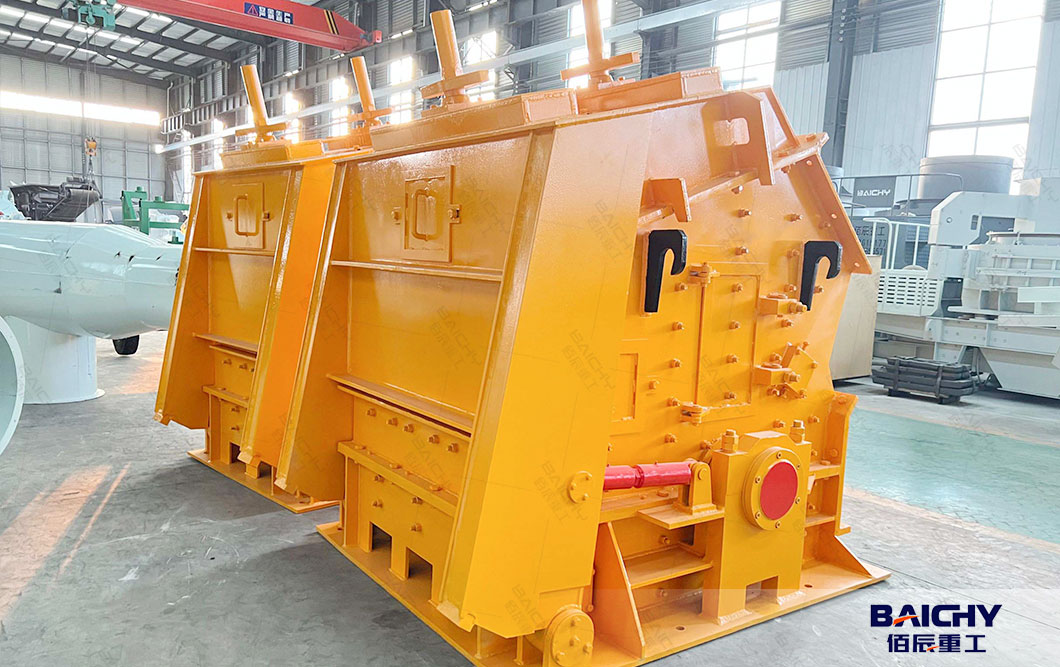
Feeding speed adjustment steps
1. Analyze production needs and equipment capabilities
1-1. Understand the requirements of the entire production process for the crusher output and the maximum processing capacity of the crusher.
1-2. Consider the nature of the material and the difficulty of crushing to determine the appropriate feeding speed range.
2. Adjust feeding equipment parameters
2-1. If a vibrating feeder is used, the feeding speed can be changed by adjusting the eccentric block angle or amplitude of the vibrating motor. Increasing the eccentric block angle or amplitude will increase the feeding speed; otherwise, it will slow down.
2-2. For belt conveyor feeding, the running speed of the belt can be changed by adjusting the motor speed or belt transmission ratio to control the feeding speed.
3. Observation and adjustment
3-1. Start the crusher and feeding equipment, start feeding at a lower feeding speed, and observe the filling and operating status of the material in the impact crusher.
3-2. If there is too little material in the crusher and the equipment idles for a long time, the feeding speed can be gradually increased; if it is found that the material is accumulated in the crusher and the load is too heavy, the feeding speed should be reduced in time.
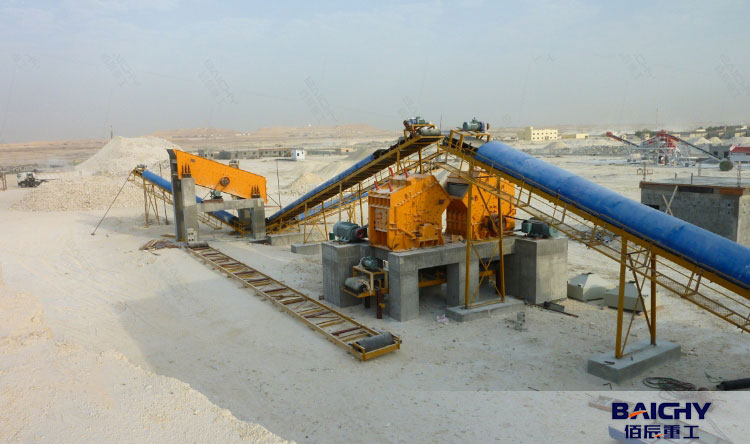
By following these five steps to adjust an impact crusher machine, you can fine-tune its operation, optimize crushing efficiency, and produce high-quality end products. Regular monitoring, adjustments, and maintenance are key to maximizing the performance and longevity of the impact crusher in your processing operations.









 2025-06-28
2025-06-28



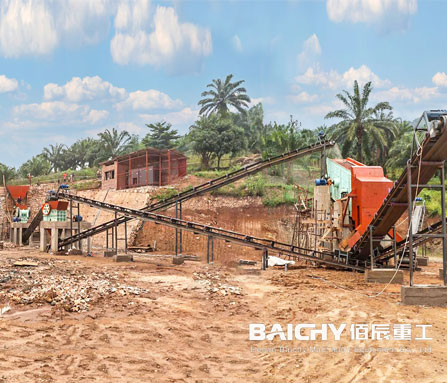

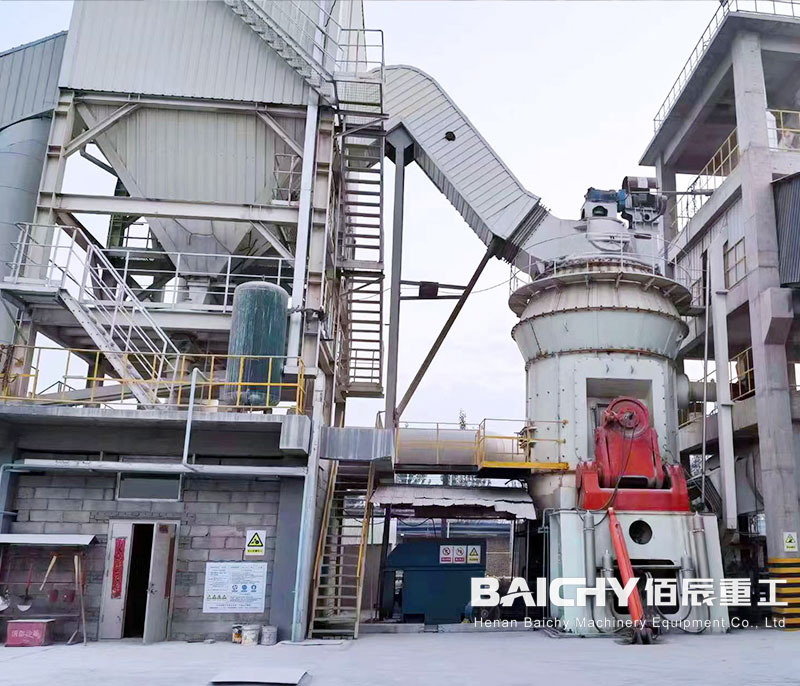
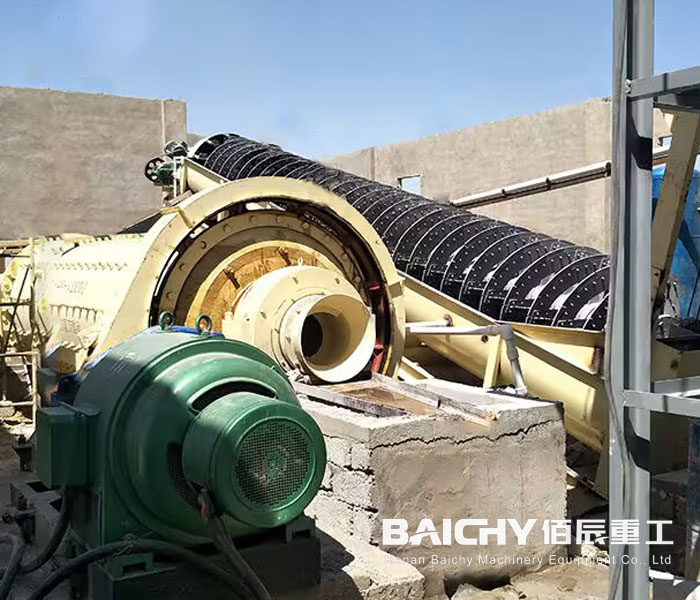














 86-15093113821
86-15093113821
 86-15093113821
86-15093113821

